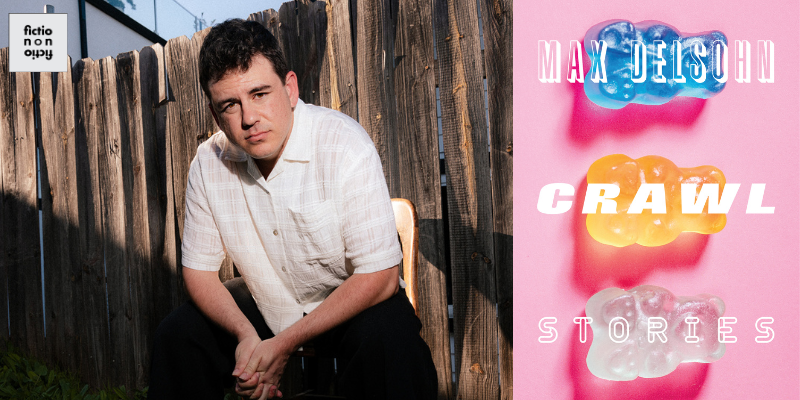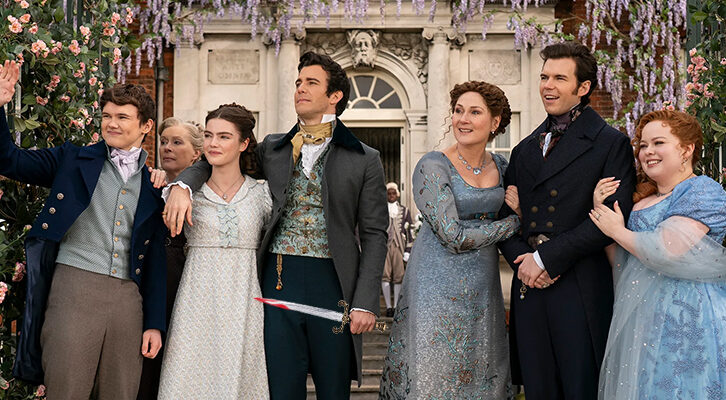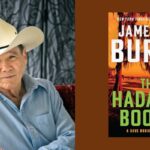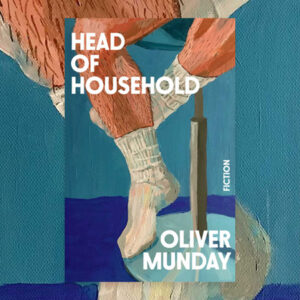
Max Delsohn on the Importance of Portraying Trans Men
In Conversation with Whitney Terrell and V.V. Ganeshananthan on Fiction/Non/Fiction
Fiction writer Max Delsohn joins co-hosts Whitney Terrell and V.V. Ganeshananthan to discuss his debut short story collection, Crawl, which features a number of transmasculine characters. Delsohn addresses the Trump administration’s broad and vicious assault on transgender Americans, from advertising misinformation to attacks on higher education. Given pending legislation, he considers how shifting dynamics at the state level affect the decisions trans people and their families are making to find safety. Delsohn also reflects on intra-community violence and trans men’s position as minorities within the queer community. He considers how those with trans identities navigate misinterpretation, explanation, and other social pressures from cisgender people. He recounts how his experiences with the queer community in 2010’s Seattle, where many of his stories are set, have influenced his work. Delsohn talks about the importance of access to gender-affirming care and reads a related excerpt of “The Machine,” from Crawl.
To hear the full episode, subscribe through iTunes, Google Play, Stitcher, Spotify, or your favorite podcast app (include the forward slashes when searching). You can also listen by streaming from the player below. Check out video versions of our interviews on the Fiction/Non/Fiction Instagram account, the Fiction/Non/Fiction YouTube Channel, and our show website: https://www.fnfpodcast.net/ This podcast is produced by V.V. Ganeshananthan, Whitney Terrell, MaryClaire Dunagan, Emani Guerin, and Sarah Feldmann.
Crawl • “18 or 34 Miles From Perennial Square,” • “We Do Not Belong Everywhere,” • “Thinking Like The Knight,”
Others:
The Tragedy of Heterosexuality by Jane Ward • On Liking Women by Andrea Long Chu • Federal Agreement FAQs: Brown’s Sex and Gender Policies and Gender-Affirming Care
EXCERPT FROM A CONVERSATION WITH MAX DELSOHN
V.V Ganeshananthan: The ACLU is tracking 616 anti-LGBTQ+ bills in the U.S. and many of those are anti-trans bills. I live in Minnesota, one of several states developing a reputation as a queer and trans refuge. I hear “I have a trans family member, I have a trans child, I have a trans sibling, my family would like to get out of this state.” I wonder if you could just talk a little bit about how in this legislative, moral, cultural limbo trans Americans are moving, changing their circumstances. How are people deciding things about their lives under these conditions?
Max Delsohn: It’s really individual. I know people who are doing all kinds of things. I have friends who have left the country, who left the country three to five years ago, because the writing has been on the wall about all this for a while. None of this is happening in a vacuum. There were crucial moments throughout the Biden administration that increased protection for transgender people would have been prioritized and wasn’t. As Trump is really increasing the rhetoric and slamming on the gas in the hostility against trans people, you’ll see more and more people will leave the country. Part of what’s important to me about my book, as a book that is completely set in Seattle, which is sort of seen as this liberal utopia, is there’s still transphobia, and trans people are still at risk there for all kinds of things. There are still trans bashings happening on Capitol Hill in the gay district within the last several months. Targeted attacks on trans people, they’re there.
The idea that there is not a safe place in America for trans people right now is absolutely valid and has a lot of truth to it. One of my best friends is living in in Austin, Texas, and has seen a lot of their trans community leave for New York City or or wherever else, because of the way that Texas in particular is going after its trans residents. Florida is another state where there’s some incredibly frightening legislation that’s targeting trans people there. But my friend is staying in Austin for, at least for now. I, personally, don’t have any plans to leave the country. I live in Los Angeles, California, and Los Angeles is absolutely relatively safer than, perhaps, a place in Florida in one sense. But where you decide to live right now as a trans person is so much about what your individual access to resources are, what your networks are. I have friends who have dual-citizenship in Canada and they’re like, “Yeah, I’m just gonna go to Canada.” Or “I’m gonna try to apply to this teaching job in the X country, and kind of wait it out.” If, in fact, there is something to be waited out remains to be seen.
For someone like me, I don’t have any ties to other countries. There’s some really wonderful mutual aid across many different kinds of identities in Los Angeles that I’m plugged into that I feel a good amount of confidence in and supported. What makes sense for me, specifically, is to stay. And I also enjoy a lot of privilege as a white, stably housed, stably employed trans man. There are so many things about my identity that I think make it easier for me to stay and, hopefully, as often as possible, fight for the people in my community that are in more precarious positions.
Whitney Terrell: I think it’s important to make clear that one of the tricks of right-wing propaganda and also fascism, is to find an “other”—it doesn’t really matter who the “other” is—and then focus everyone’s attention on them while you are taking rights and money away from everyone. I looked up this stuff on fact check.org and they had a piece in October 2024 about federal funds being used for gender-affirming care. They’ve said that this had happened to two people as of October 2024. Compare that to “Hey, I’m going to tear down the East Wing of the White House, I’m going to spend $230 million building a ballroom.” The amount of federal funding actually going to gender-affirming care in the way that these ad campaigns make it seem is minuscule. It’s really not relevant. It’s a scare tactic.
Okay, we want to pivot to your book. Crawl is a short story collection that explores gender identity, expression and ambivalence, even from within the LGBTQ+ community. Readers can see this clearly in characters like Hunson from “The Bubble,” who demonizes other queer characters for making the same gender-affirming choices that he did. What are the effects of this in real time? Can you say a little bit about that story and how you ended up putting that on the page?
MD: Thank you for that question. Hunson is meant to satirize a particular phenomenon of intra-community conflict that you see in queer and trans communities where there’s an argument, usually from some trans person that has medically transitioned and is actively conforming to a gender that they were not assigned at birth—so like a trans man who strongly identifies as a man, trans woman who strongly identifies as a woman—say that somebody with a more fluid gender identity, like a non-binary person, is not really trans. It’s that argument which this character, Hunson, is making in the book and you see it a lot. I’ve talked to so many people who are either non-binary and have been out as non-binary for a while, or are going to enter a non-binary gender transition, or they’re going to ultimately do something that’s more—the antiquated term is female to male, which myself and some other trans people like to reclaim—that conventional trans man transition, and these people will be like, “I didn’t transition because I didn’t feel like I was trans enough.” It’s this weird internalized thing that happens.
There’s some slang terms for it. Trans medicalist is a term. Truscum is a term—I feel like that was more peak Tumblr era, and maybe it’s fallen out of fashion. Nobody knows what truscum means anymore. But I thought it was important because it’s gatekeeping, right? It’s saying who is really trans, who gets a transition, whose transition is going to be accepted by the broader queer and trans community. Even beyond trans people. If there’s a lot of trans people being like, “You’re not really trans,” other cis queers are going to listen to that person a lot of the time. Hunson is a very silly character, he’s pretty absurd, he’s played for laughs. He’s also meant to be an object of ridicule because he’s meant to represent this line of thinking. It keeps people from transitioning. And as Sugi was saying, when people can’t transition, they are at greater risk for suicide and self-harm. This is a real issue. If there are things that are keeping trans people or people who want to transition from transitioning, we need to talk about that.
So much of my book is about the dynamics of a broader queer community, and how, specifically trans men are marginalized within those communities that are often predominantly cis queers. Trans people, in terms of the LGBTQ umbrella, are minorities within that minority group. There’s not that many of us even compared to the rest of the minority group. So community is so important. In general, queer people are often estranged from their families and have to rely on chosen family and things like this. The community bonds between friends and sex partners and romantic partners, there’s such an incredible emphasis. Lives can enter into this precarious state really quickly, when people lose access and comfort in these communities. So it was really important to me to put that on the page. My main thing is, I just hope that readers don’t think that I agree with Hunson, or am endorsing what Hunson says. I very emphatically believe that we should not be dead naming and misgendering non binary people. Just to put that out there, live on the air here.
VVG: One of the great things about your book is that—I’ve had friends say this to me about short story collections—it’s much harder to pigeonhole or be reductive about discussions of identity, because there’s so many characters who have that identity and who are behaving in different ways. It’s a nice way of forcing us to have a more complex discussion. Crawl is full of these moments of discomfort or awkwardness—like there are trans characters like Harvest from a story called “The Machine”—you got characters fielding private and personal questions from probing people who don’t understand. Or there’s like Gene in “Sex as a Leisure Activity”—you guys can tell that Max is brilliant at titles—experiencing sexual encounters that you know are not considering trans-related physical differences or enduring malicious misgendering. These characters are all contending with injustice and being misunderstood. I wonder if you can talk a little bit about navigating people who don’t understand you or your community, and then depicting that in these stories. You’ve been a stand up comedian. There’s a lot of humor in these stories. They’re very sharp, they’re very direct, they’re often very funny, and they’re not letting us steer away from things that some of us might less used to looking out on the page whether it’s sex or certain kinds of conversations that, often in fiction, are just not depicted, but we know they’re happening.
MD: Thank you for this question. This book is very much focused on trans and cis interactions, often cis queers and trans men, and yes, there’s a lot of humor there. I love to think deeply about what’s happening in those moments where the trans guy protagonist, in the case of these stories, is negotiating what they’re going to prioritize in that awkward moment of misunderstanding or ignorance. It’s really a question of what does that character want in that moment, and what are they willing to do to get it? Maybe it’s a cis man sexual partner, and it’s like, “What am I willing to compromise on in terms of my ethics or my politics? What do I want from this person in terms of a sexual encounter? What do I want—in the case of Harvest, that character that you mentioned—in terms of my job situation and what am I willing to perhaps nod along to or lie about? These are real questions that myself and other trans men are constantly navigating.
Of course, there’s always varying degrees of awareness of that negotiation with this, [and] with the cis person in question. Another track that you have to think about is, what does this person know about trans people? What do they think they know about trans people, and how does that play into this conversation we’re having, or this sexual, romantic encounter that we’re having? And, not to toot my own horn, but it’s really a gold mine, there’s a lot of resources in there, lots to laugh about, almost a comedy of errors, a series of misunderstandings. I do mine it for laughs, and I did in my stand up. My standup was really all about the absurdity of going through life as a trans guy. But what I love about fiction is I’m able to work in multiple registers. I think why you don’t often see in literary fiction these experiences of trans people suffering through an ignorant moment with cis people is because it’s also very painful. I think literary fiction is uniquely able to capture all of those different feelings and tonal registers that you might move through as a trans guy in that moment. The complexity of that, to me, is really important to represent.
Transcribed by Otter.ai. Condensed and edited by Rebecca Kilroy. Photograph of Max Delsohn by Quinn Tucker.
Fiction Non Fiction
Hosted by Whitney Terrell and V.V. Ganeshananthan, Fiction/Non/Fiction interprets current events through the lens of literature, and features conversations with writers of all stripes, from novelists and poets to journalists and essayists.



















